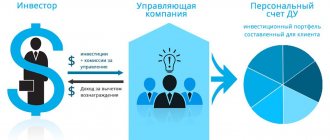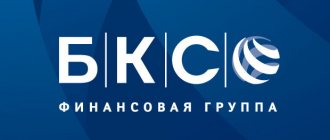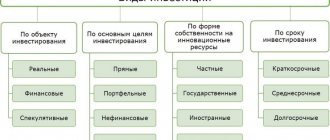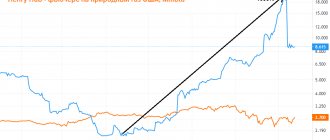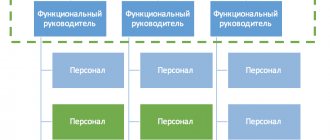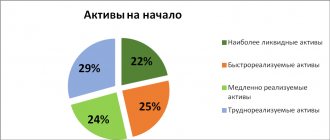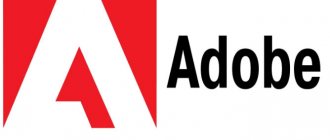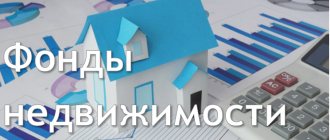Where to invest money to receive passive income on the stock exchange? Let us dwell on the features of trust management of money and assets in the stock market and the Forex market: what ways of earning money exist and whether investment and management companies and private traders can be trusted. Let's also consider the risks associated with investing money in mutual funds, trust management in IIS and individual trust. In general, we will go through all the points regarding trust management so that you have an idea about this method of earning money.
What is trust management
Trust management itself means that we transfer our assets to the manager for disposal, but without transferring ownership rights to him. This implies that the assets will be handled by professionals who have the appropriate qualifications and time to carry out transactions with assets in order to generate profit for the trust management client.
The assets that can be transferred to trust management can be completely different. This can be real estate, cash, securities, as well as various tangible and intangible assets. In general, the process of trust management is regulated by Chapter 53 of the Civil Code of the Russian Federation.
In this article, we will look specifically at trust management in the securities market.
"Private" managers
We are not talking about a company or an agency, this is an ordinary user who does not have the necessary official documents to provide these services. A person is simply online through forums, social networks, telling what a successful trader he is, thereby providing his services.
It is better to refrain from cooperating with such specialists, at least they have a minimum of responsibility to you. They can easily drain all client funds, or simply disappear with the money.
There are two remote control methods of this type:
- transfer of funds to a person on his word of honor;
- a brokerage account on the Moscow Exchange is given access, and the expert makes trades. You won't be able to steal funds, but you can drain them without any problems.
In this case, we are not talking about remote control in the Forex market or binary options. This is generally something you shouldn't do.
Who can take control of money
First of all, it is worth mentioning who has the right to engage in official trust management in the securities market. Trust management can only be carried out by organizations that have a specialized license to carry out securities management activities. Such organizations are called management companies. And the employees of these management companies must have special certificates from the Federal Financial Markets Service, certifying the employee’s right to manage securities and funds. Only in this case will it be a process of legally regulated and official trust management.
This norm is regulated by Article 5 “Securities Management Activities” of the Federal Law “On the Securities Market”.
Deposit/withdrawal
top up your account :
- through the office of Otkritie Bank, funds are credited to the account within 1-3 hours
- through any other bank, but they can take up to 5 days
- any other method of replenishment (Internet banking, payment systems), which allows you to make a transfer to bank details
If necessary, you can simply transfer money from one account to another. Such a payment order can be issued either through Kwik or through your personal account.
withdraw money either through the Otkritie Bank cash desk or to a card of any bank. There are no special restrictions with this.
Types of trust management
Currently, the concept of trust management has largely received a free interpretation. Since it happens that trust management refers to various forms of consulting and analytical services.
Therefore, let's look at what are the main forms of trust management today and what are the mechanisms of their work. There are 3 main forms of trust management:
- Collective trust management.
- Individual trust management (classical trust management).
- Advisory trust management.
Is there a good remote control in Russia?
Oddly enough, there is. With one small clarification: an employee of the company becomes the manager (from the commercial or financial director to the entire department). It is profitable for the owner to pay wages, loading workers with responsibilities and transferring risks to them. In this case, the requirement for licensing activities can be circumvented.
There are trust funds operating on the global market that are ready to enter into transactions on behalf of the client. In our country, under a pompous name, a financial pyramid is often hidden. Think for yourself: it’s more profitable for a good specialist to be a broker, but office plankton can and does what they can do.
In some countries, trust management is a permitted activity for individual entrepreneurs. In the Russian Federation, this is the area of work of legal entities. If a private trader offers his services, his activities are illegal. Agreements will be drawn up as “providing financial advice”. In this case, consider that you have given money.
How collective trust management works
The main feature is that investors’ funds are pooled into large pools and the manager manages the entire pool, while shareholders own only a part of this pool (share) and receive a proportional income. In other words, we can say that this is a retail form of trust management available to small clients.
Who controls
Collective investment management activities can be carried out by accredited professional participants in the securities market - management companies.
Manager's commission
A fixed percentage of the fund's assets, plus commissions on the sale and purchase of shares.
Advantages of collective remote control
- Low entry threshold for investment amounts (the average cost of one mutual fund share is several thousand rubles).
- Obtaining professional licensed management services even for small investment amounts.
- Understanding the size of risks and protecting financial investments through the fund’s investment declaration, which specifies what assets the fund works with (for example, funds investing in bonds have lower returns, but smoother and more stable growth than stock funds).
- Wide range of tools to choose from. That is, in this case, the investor can choose a specific market segment, or type of asset (for example, industry mutual funds or real estate funds), or purchase broad market funds.
Disadvantages of collective remote control
- There is no personal approach to investing; each investor is forced to adopt a general investment strategy.
- The investor does not see the fund's assets online, as with independent investing. There is only periodic distribution of results and asset structure.
- The industry is highly regulated, this applies to a greater extent to mutual funds, that is, in this case, managers are often constrained by strict legislative frameworks regarding the composition and structure of the fund’s assets, the type of operations carried out, etc.
- A fixed commission in the form of premiums when buying or selling a share, plus a fixed percentage of the amount of assets per year. This type of remuneration weakly stimulates the management company to obtain the maximum result for the client.
Recently, instruments such as ETFs have become widespread. This is a foreign analogue of a mutual fund, but in most cases ETFs do not represent any form of capital management, i.e. a company selling shares in an ETF does not, in fact, carry out any management of these assets - it is simply a combination of certain assets and a way for the investor to buy those assets that he cannot afford. For example, using an ETF, buy all the shares included in a particular index, or in a particular industry. These are passive investments that allow the investor to simply diversify as widely as possible, or invest in target market sectors that are the most attractive from the investor’s point of view (we described this tool in more detail in the article “ETF Funds”).
Investments in mutual funds
A mutual investment fund (aka UIF) is an excellent opportunity to make money for investors with small capital. In this case, the total capital of the fund is formed from all investments, then the profit is divided in accordance with the contribution of each investor.
There is no need to independently form an investment portfolio of securities. Opening offers several ready-made portfolios, depending on which assets will be used, you can choose the following options:
- stock
- bonds
- foreign asset funds
- stock indices
A list of mutual funds can be found on the Otkritie website , and the conditions for participation in it are also indicated.
At first glance, we can say that mutual funds in Otkritie are not profitable; it is better to use structured products.
Individual trust management
In this case, investor funds are managed at a personal level. In the case of real trust management, an individual trust management agreement is concluded with the client, which is regulated by the civil code of the Russian Federation. As an annex to the agreement, a personal investment declaration is developed, which reflects the main investment parameters (a little further we will indicate which ones). The agreement and personal investment declaration serve as protection against unauthorized actions of the manager. At the same time, from the point of view of legislative regulation, there are practically no restrictions on the actions of the manager. And unlike mutual funds, any investment strategy is theoretically feasible here, that is, any assets, from the derivatives market to foreign exchanges. Any strategies are also possible, from classic passive investing to speculative strategies with robots, algorithms, etc. Conditions for investment amounts, terms and potential risks are already discussed here individually.
It is also important that the manager does not have the right to guarantee at least any profitability; if this is done, then this can be equated to a violation of the law
. Here we can only talk about the degree of probability of obtaining the expected return. Since profitability and risks are always proportional, with conservative strategies the probability of obtaining the expected return is much higher than with aggressive ones.
Who carries out individual asset management
Licensed individual trust management is carried out by professional and certified market participants - management companies. These are banks and investment companies that are accredited as professional participants in the stock market and, as a rule, they are also involved in managing mutual funds and non-state pension funds (more information about non-state pension funds can be found in the article “How to choose the right non-state pension fund”).
In practice, to reduce the costs of asset management, individual trust management in large investment companies and banks also has standard template investment strategies, which are essentially different portfolio investment tactics with varying degrees of intervention by managers.
Commission for personal remote control services
In the case of an individual trust, it is set on an individual basis, but as a rule it is a combined fee of two parts: a fixed percentage of the fee is charged annually on the amount of assets, and a certain share of the income received by the manager for the year is also charged.
We will talk in more detail about how individual trust management strategies are implemented below, but now we will note brief pros and cons.
Advantages of a personal remote control
- Individual approach to the client’s investment goals and methods of achieving them.
- Possibility of implementing various investment strategies depending on the client’s resources.
- The manager's remuneration largely depends on the results of his work.
- The agreement and declaration protect the investor from arbitrary and unauthorized actions of the account manager.
Disadvantages of a personal remote control
- High minimum entry thresholds for this service. The average threshold for entry into individual trust management for various strategies is about 6 million rubles. (the minimum on the Russian market, which we found, starts from 250 tr, but with such amounts this is clearly a template management strategy).
- It is also worth saying that despite the personal approach to trust management, you will not have access to your account. The asset structure and dynamics are sent to the client periodically or upon request.
- It is often impossible to withdraw even part of the funds before the deadlines specified in the agreement. The following situations are quite real: the client account of the remote control is in the red, and the client urgently needs money, at least part of it. In this case, a situation may arise - either take everything and record losses, or nothing. Also, depending on the circumstances and investment conditions, there may be situations when it is physically impossible to withdraw funds earlier than after 3 years (for example, when investing in a low-liquid 3rd tier, etc.). Of course, all this can be reflected in the declaration, and indicate there the possibility of urgent withdrawal, share in liquid instruments, etc., but for this you need to have certain knowledge and understanding of the market.
Conditions of remote control in top Russian companies
The conditions (term of the contract, remuneration) of the companies providing this service differ.
| Name | Strategies | Investment horizon | Recommended investment threshold (in rubles, unless otherwise stated) |
| JSC "UK REGION Investments" (formerly "OFG Invest") https://www.amregioninvest.ru/du/ | |||
| Moscow income plus | 3 years | Individual approach, information is not disclosed | |
| "Gazprombank - asset management" https://www.gpb-am.ru/individual/pif/opif-rynochnykh-finansovykh-instrumentov-gazprombank-obligatcii | |||
| Ruble bonds | From 1 year | 0t 15 million | |
| Stock | From 1 year | 0t 15 million | |
| Balanced | From 1 year | 0t 15 million | |
| Currency operations | From 1 year | 0t 15 million | |
| Structured deposits | From 1 year | 0t 15 million | |
| Structured notes | From 1 year | From 500 thousand US dollars | |
| Finam https://www.finam.ru | |||
| Seven Samurai | * | From 500,000 | |
| Climbing | * | From 500,000 | |
| Harmony | * | From 500,000 | |
| Synergy | * | From 700,000 | |
| Oil-gold-currency-stocks | * | From 700,000 | |
| Window to America | * | From 700,000 | |
| New global leaders | * | From 500,000 | |
| American stocks | * | From 300,000 | |
| The best economies in the world | * | From 300,000 | |
| Eurobond | * | From 300,000 | |
| Futures | * | From 300,000 | |
| Dividend | * | From 500,000 | |
| Defense of Caro-Kann | * | From 300,000 | |
| Deposit plus | * | From 300,000 | |
| Anti-crisis | * | From 300,000 | |
| Conservative | * | 0t 3 million | |
| Author's strategy "Yulia Afanasyeva" | * | From 300,000 | |
| Eagle flight | * | From 500,000 | |
| Running on the waves | * | 0t 1 million | |
| Balanced shares | * | 0t 2 million | |
| Titans of growth | * | From 500,000 | |
| Perfect balance | * | From 500,000 | |
| Double punch | * | From 500,000 | |
| Author's strategy "Alexey Chichikin" | * | From 300,000 | |
| Author's strategy "Damir Akchurin" | * | From 300,000 | |
| Author's strategy "Nikolai Solabuto" | * | From 300,000 | |
| Author's strategy "Sergey Pogudin" | * | From 300,000 | |
| Author's strategy "Artem Boroday" | * | From 300,000 | |
| MSCI RUSSIA (Index) | * | From 500,000 | |
| Flexible force | * | 0t 1 million | |
| *Note: complete information is provided on the website for each strategy |
Advisory Asset Management
Advisory management is not a real trust management, since in this case the right to dispose of assets or funds does not pass to the manager, and all transactions occur in the name and on behalf of the client himself. An investor has only the right to listen or not to the advice of a more experienced market participant.
In the case of brokerage advisory management, this is a service that is created by the brokers themselves and (in our personal opinion and suspicion) often comes into conflict with the interests of clients, since frequent changes in investment ideas encourage the client to make more transactions and ultimately pay a higher brokerage commission (See the article “why brokers don’t like investors”).
Who manages the assets
In this case, a consulting management agreement is concluded with the client, which states that all transactions take place on behalf and on behalf of the client and all responsibility lies entirely with him.
Commission for consulting management services
The commission for most of these services is fixed and to a small extent tied to the work of the manager, and most often it is the same brokerage commission, but only at a higher level.
Pros of Consultative Management
- Low entry thresholds. The consulting management service can be used even for a portfolio amounting to several tens of thousands of rubles.
- It seems interesting for market participants who have at least 1 year of investment experience, when they already have an understanding of how to analyze certain assets and the ability to filter out good investment ideas from “temptations”. To reduce the time spent searching for investment ideas, you can receive these ideas from a broker. Also, this service may be of interest to unsure investors, as a second opinion. Communication with an experienced consultant allows you to improve your own analysis skills and broaden your view of the market.
Cons of Consultative Management
- The scheme of such services is structured in such a way that it provides the maximum degree of legal protection to the consulting manager. All responsibility for decisions made in fact lies with the client of the consulting management.
- In the case of brokerage consulting management, the principles of constructing the service itself contain a conflict of interests between the consulting manager and the client (in our opinion).
So, we have found out that only licensed professional stock market participants, that is, management companies, can engage in real trust management in the securities market. Therefore, below we will dwell in more detail on this form of trust management. First, we’ll look at how the process of interaction between the client and the company goes, then we’ll look at the conditions of remote control in top Russian companies, and finally we’ll figure out how to choose a remote control.
Trading platforms
The broker offers trading either through MetaTrader5 or through Kwik:
- Quik - through it you can work with several accounts at once, the terminal makes it possible to export the necessary data to databases, any technical analysis packages, Excel, then conveniently work with statistics at a time convenient for you. It is possible to create advisors in the LUA programming language
- MetaTrader 5 - through it you can trade on the foreign exchange market, the stock section of the Moscow Exchange, and the FORTS section. The possibilities are the same - it is convenient to perform technical analysis of the stock market, you can write your own advisors based on working trading strategies
Mobile versions are available ; you can download them from the Play Market (for Android devices) or the AppStore (for Apple devices).
Trading is far from the only option for making money. If you don’t want to trade on your own, you can simply invest your own funds. The broker offers several investment options for its clients.
Trust management process
To understand how to choose a remote control, you must first imagine the whole process. So, the sequence of interaction with the management company is as follows:
- When a client contacts a management company, they talk to him, establish the client’s main investment goals and needs, and based on this, an investment declaration is developed and signed.
- The investment declaration reflects all the main investment parameters, such as:
- Classes of assets where the manager can invest and their shares in the portfolio (stocks, bonds, futures, options, currencies, etc.).
- Types of transactions carried out (margin trading, short sales, repo).
- Principles of asset valuation and selection.
- Investment time horizons.
- Types of assets by industry, country, etc.
- Expected return.
- Acceptable level of risk of an investment strategy.
- Trust management strategies are developed personally or the client accepts one of the company’s basic management strategies. This depends primarily on the investment amounts available to the client, as well as on his initial needs. In fact, often, trust management strategies represent classic portfolio investment with varying degrees of intervention by the manager; this point is also necessarily reflected in the investment declaration.
- After concluding an agreement, the client does not have direct access to the account, but receives periodic reports from the manager on the work with his assets. Commissions are automatically deducted from the account.
- As the investment deadline approaches, the manager agrees with the client on further actions - withdraw funds or extend the management agreement. If a decision is made to terminate the contract, the manager begins to sell assets and at the end of the management period the client can withdraw the funds.
The second important step in choosing a trust is to understand the key conditions of trust management for Russian companies.
Conflict between broker and management company
Any broker makes a profit by concluding a large number of transactions. Accordingly, when a brokerage management company is located in one financial group, the management company certainly gives the go-ahead to the broker to conclude a large number of transactions. This outcome is not always beneficial for the client. Often, the more fuss there is on the stock exchange, the higher the risk.
Conflict "underwriter - management company"
Financial groups often conduct IPOs, initial placements on stock exchanges; accordingly, it is in the interests of the organization to increase the value of an asset. At this point, the management company can manage client portfolios. It turns out that the organization independently increased the price of the instrument, and then sells these assets to clients with portfolios at a high price.
Minimum 100% profitability
In the process of transferring funds, we are happy when there is a minimum guaranteed profit, for example, there will definitely be 3%. There are several pitfalls here. A management company can divide portfolios into two types:
- with the promised profit;
- no profit.
When there are losses, the firm tries to compensate for the fact that it will have to pay what it must pay under the contract through portfolios that do not have a guaranteed return.
Clients with promised profits are also not immune from unpleasant force majeure situations. It turns out that an organization can distribute many obligations, while the financial reserves due to a lack of funds will not allow fulfillment of obligations if quotes go in the wrong direction. The company will simply go bankrupt.
"Ratchet Effect"
The management company sets two types of commission costs for its clients:
- installed %;
- % of profit.
Regarding the second type, if the client’s portfolio grows, the management company takes a reward from the profit. The portfolio may fall for a certain time and then the company does not charge a commission, then it grows again and a commission is charged. It may turn out that at the end of the year, the price of the assets has not changed, but due to the minimum base effect, the company took a commission from you. The client did not make money, but the company got what it deserved.
Pay attention to the information book “Notes on Investing”; it is in this work that all stages of the work of the management company and the functioning of the management company in general are described in detail.
I don’t want to always talk about the negative, but still, according to statistics, only about 5 companies have covered the American market for 20 years, and it is these organizations that have been able to outperform the stock index for 20 years. Moreover, even during the period of unprofitable recession there was a drawdown, but slightly less than the index. For many this is just the exception. These funds most often do not undertake work with small portfolios.
In general, the statistics are sad, since out of 80% of management companies in the domestic market lost to the index, 13% acted in parallel and only 7% were able to beat it.
Terms of trust management
In total, 30 management companies are currently accredited on the Russian market and provide trust management services. In the table below we present a list of these management companies with brief initial management characteristics: basic management strategies, minimum threshold amounts for entering the service, minimum investment terms.
.
So, now we see that there are quite a lot of management companies that provide trust management services in the securities market. Now let's figure out how to choose a reliable and effective manager, as well as a suitable program.
Structured products from broker Otkritie
The company regularly updates structured products, and already closed products only confirm the effectiveness and profitability of this type of investment. There are 3 types of structured products :
- protective - the risk of losing invested funds is almost zero
- coupon - with a guaranteed payment of income even if the price of the shares does not change
- securities
At the moment, the broker offers investing in the following structured products:
- fixed coupon . The yield exceeds the deposit rate. The link is to shares of such companies as Rosneft, Lukoil, Gazprom, Sberbank of the Russian Federation, Surgutneftegaz, VTB
- income on shares . The same shares are used class=”aligncenter” width=”357″ height=”356″[/img]
- capital protection products
How to choose a remote control
The choice of trust management can be divided into 2 stages:
- Selecting a management company.
- Selecting a remote control strategy.
When choosing a management company, it is important to conduct a reputational assessment of the company, as well as an assessment of the results of past work.
From the point of view of reputation criteria, the following is important:
- The management company must clearly have a valid license for trust management in the securities market;
- It must be a reliable, large and well-known management company;
- Transparency of jurisdiction and shareholders (no offshore companies or global companies with central offices on islands, etc.).
- Also, as a reputational criterion of reliability, you can compare managers by the amount of funds in trust management and the amount of equity capital of the management company. The larger the amount of funds and the larger the amount of equity capital, the larger and more reliable the company.
In the table below we provide a rating of Management Companies by the amount of funds in trust management:
.
How to register and open an account
There are 3 ways to register with the Otkritie broker:
- visit the office with a complete set of documents. For citizens of the Russian Federation, a passport + a document confirming the registration address is sufficient
- through any branch of Otkritie Bank
- online - only if you are registered on the State Services portal
The last registration option is the most convenient. With it, passport data is provided remotely, and you only need to fill out a standard registration form and select a tariff plan. Within 24 hours you will receive an SMS confirming the activation of the agreement with the broker. You can top up your account and start trading.
As such, the concept of a “minimum deposit” does not exist, but the company notes that for comfortable trading it is advisable to deposit at least 50,000 rubles into the account.
Register in Otkritie
Evaluation of the performance of the trustee
Despite its apparent simplicity, this is an extremely difficult task. And we will never be able to 100% understand what the results of its management will be in the future. The whole problem is that trust management strategies are largely individual and very much depend on the specific wishes of the client and the volume of his investment funds. Without seeing the client's investment declaration, it is simply impossible to say whether the result obtained is effective for the manager.
Typically, the returns of managers and funds are compared with the growth of the market index. And if the fund outperforms the market index, the fund is considered to have performed well. This method is bad because it does not take into account the investment structure, asset classes and risk of the investment strategy. For example, in 2021, the Russian market grew by 26.7% and the profitability of a fund that gave a return of 15% per annum may seem small, however, if the manager has reduced the risk of capital loss to a minimum, this is already quite a decent profitability.
As a result, it is necessary to make a comprehensive assessment:
- View the returns of previous years in comparison with the benchmark (base index).
- Assess profitability over a historical period (first of all, assess the stability of profitability)
- In addition, you can look at the performance of the management company in comparison with its other assets, how it manages its line of mutual funds and manages the savings of non-state pension funds. Here, a criterion for good management is also considered to be a comparison with the market index, which is taken as a base.
But it is worth understanding that this assessment will still not give a reliable guarantee of the manager’s effectiveness, but will only add a certain plus to his piggy bank.
It is also worth remembering that the job of a manager is highly paid work. The management company takes a commission, in most cases it is combined, this is a fixed percentage of assets and a percentage of the profit received. The size of the commission is set individually, but as a rule it is 1-3% of the value of assets plus 10%-30% of the profit received.
As a result, it may turn out that in history and in the current period the manager has outperformed the market and shown excellent results, but after paying significant commissions, the investor’s actual result turns out to be significantly worse than the usual passive (low-risk) independent investment strategy. This is certainly not always the case, but it is always necessary to remember this when assessing the historical results of a manager’s work.
The graph below shows a comparison of remote control with other types of investment. The graph schematically shows that with trust management, the investor incurs maximum costs and at the same time has absolutely no control over the situation.
In fact, the most important parameters when assessing management will be the nuances that you will already discuss with managers - such as strategy, tools, acceptable management tactics, etc. This is where the myth that it is easy to choose a manager ends. After all, in order to evaluate the work of a manager, his merits in the framework and beautiful graphs of capital growth in the past are not enough for you, even if for the last 20 years - you must understand what exactly he will do with your money and not in the past, but in future. Let's look at how to evaluate a trust management strategy.
About broker rates
In total , the company has 16 tariff plans, so I think everyone will find an option for themselves. I won’t describe everything, I’ll just focus on a few examples:
- “Investor” tariff plan is positioned as a good solution for beginners. When working with shares for volumes up to 100,000 rubles, the commission is 45 rubles per 1 trade, over 100,000 rubles - 0.045% of the transaction volume. For Eurobonds on the International Bank, the commission is fixed and amounts to 0.15% of the transaction value (it cannot be less than 0.04 rubles), charged in rubles. In terms of currency, everything depends on the daily turnover: up to 1 million rubles - 0.014% of the transaction volume, but if the daily turnover exceeds 200 million rubles, then the commission is reduced to 0.0035%, and it cannot be less than 1 ruble
- “Investor+” - for shares/bonds with a trade volume of up to 0.5 million rubles, the commission is 125 rubles per trade, if the volume exceeds 0.5 million rubles, the commission is 0.025%. For Eurobonds and currencies the fee remains the same
- Universal tariff - the commission when working with shares/bonds is 0.057% and absolutely does not depend on volumes, the minimum is the same - 0.04 rubles / 1 trade. For Eurobonds the tariff is 0.15% of the volume. When working with foreign exchange, the commission is the same as for Investor tariffs
If you are an ordinary trader who does not plan the volume of trading orders for each day and does not calculate the volume of turnover, then the Universal tariff is the ideal choice. All other tariff plans will be useful for those who are engaged in such planning.
Assessment of trust management strategy
For example, let's consider one of the manager's investment strategies. And we will give brief comments on the description of the strategy.
As we can see from the example given above, in order to qualitatively evaluate the manager’s strategy at this stage, you yourself need to have at least basic knowledge and understand the market at least at the level of a theorist, and it is better to have at least a little experience in independent practical investing. It is this criterion that ultimately determines success in investing both at the stage of selecting a manager and subsequently throughout the entire management process for correct control over the actions of managers.
Sberbank remote control service
Trust management, which is essentially a financial VIP service, has become a popular area in the Russian financial market. This service is offered by many large banks and investment companies.
Sberbank has been providing trust management of money since 1996. The bank's managing managers have extensive experience in managing investment portfolios and have been repeatedly recognized as the best in Russia.
- The services of the remote control of this oldest and most experienced bank can only be used by clients of Sberbank First, on whose accounts an amount exceeding 15 million rubles must be placed.
- Sberbank's trust management strategies include foreign exchange earnings, placements on international markets, long-term capital growth through investments in shares of successful companies, as well as shares of fast-growing companies, and high-yield asset management for risk-taking qualified investors.
- The minimum investment amount is from 3 million rubles.
Alfa Bank: remote control service
Alfa Bank provides trust money management for a minimum period of 1 year, but bank professionals recommend placing funds for 2-3 years.
- Placement of funds in Eurobonds, shares of foreign issuers, government bonds and securities, bank deposits, stock market derivatives and mixed investing.
- The types of strategies represent a wide investment spectrum - conservative, moderate, aggressive and structural, individual - according to an individually selected plan with the investor.
- The minimum placement amount for remote control is from 10,000 US dollars.
